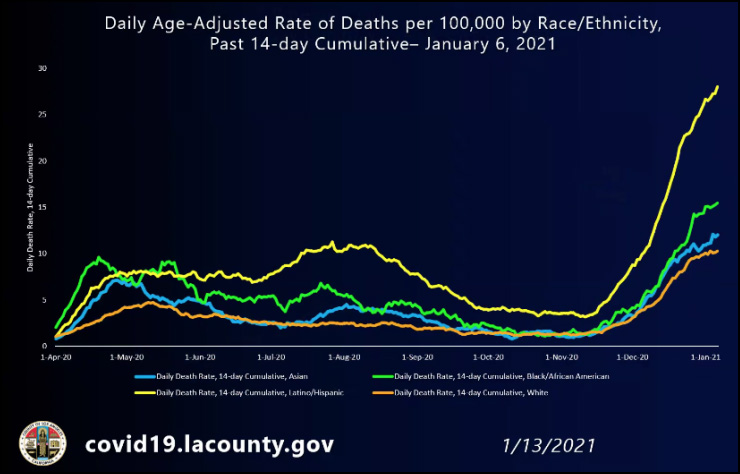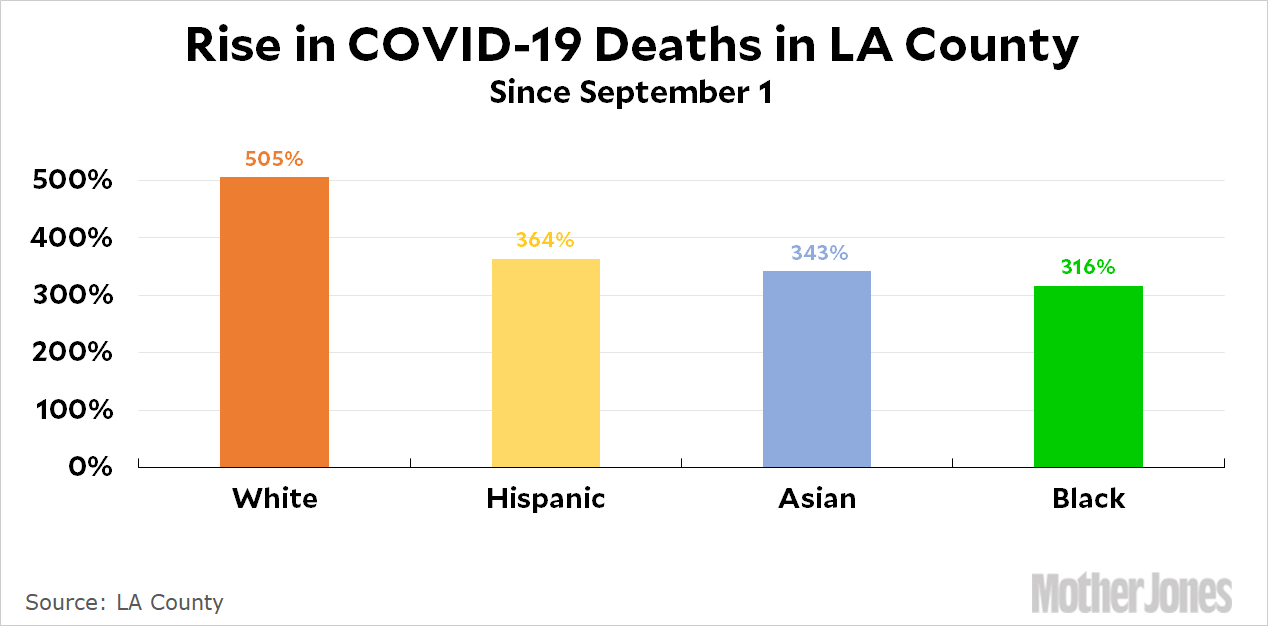The LA Times reports that death rates from COVID-19 have skyrocketed over the past three months:
Latino residents in L.A. County are dying at an astonishing eight times the rate they once did — from 3½ daily deaths per 100,000 in early November to 28 deaths a day now for every 100,000. “This is a staggering increase of over 800% in a very short amount of time,” said L.A. County Public Health Director Barbara Ferrer.
The COVID-19 mortality rate among Black residents soared from 1 death a day per 100,000 to more than 15 deaths a day per 100,000.
“Deaths have also increased dramatically among our Asian residents,” Ferrer said. The death rate among Asian American residents has grown from 1 to 12 daily deaths per 100,000 residents.
White residents now have the lowest rate of death among the other racial and ethnic groups — 10 deaths per 100,000 residents. That’s an increase from 1 death per day per 100,000 in early November.
That’s all based on this chart:

But this data was cherry picked with a starting data of November 1, the lowest trough of the previous surge. What happens if we use, say, September 1 as our starting point? Here you go:

In this case, the death rate among White patients has been the highest at about 500 percent. The other three racial groups have all gone up about the same amount, ranging from 316 percent to 364 percent.
Now, this is not to say that my estimates are right and the official LA County estimates are wrong. In fact, they’re both right. It’s just to show you that you can get significantly different results depending on which starting point to use. And as near as I can tell, there’s no “special” starting point that’s better than any other. But regardless of the exact breakdown of cases, one thing we know for sure is that the overall case growth is horrifyingly high—especially in a state that’s lagging behind almost all others in rolling out vaccine distribution. We need to do better, and we need to do it fast.

















